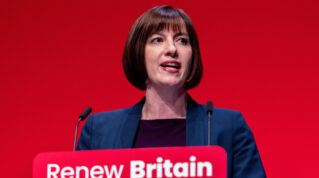Almost 80 schools named just months ago as trailblazers for Labour’s flagship free breakfast clubs have dropped out, with many saying the funding is inadequate.
The government announced 750 “early adopter” primary schools had opened breakfast clubs this week, providing 30 minutes of free childcare and a “healthy start” for about 180,000 children.
But analysis by Schools Week found 79 schools in the scheme – about one in ten – have dropped out. The 79 were included in a list published in February.
The government said more than 3,000 schools had expressed an interest, with 89 recently added to boost numbers.
However, many of the schools that dropped out blamed inadequate funding, raising fresh concerns about the viability of the clubs which are to be rolled out across all primary schools by the end of parliament.
‘Impossible to financially break-even’
Among the schools withdrawn since February are Beamont and Bruche primary schools in Warrington.
Warrington Primary Academy Trust CEO Louise Smith said they had withdrawn “because it currently isn’t financially viable for our schools.
“We very much support the concept, but it needs to be properly funded. Schools cannot pick up the hidden costs of this. The scheme is in danger of falling flat because of this funding shortfall.”
She said one school had explored linking with a private provider “but they could not make it pay without supplementing it with our own money”.
“The funding gap is considerable,” said Smith. She calculated a club for 30 children would cost at least £26.10 per day. Funding would equate to £20.70.
“We would be immediately out of pocket before we even buy food.”
Heycroft Primary in Essex, an early adopter in February, said it “regrettably” pulled out.
Andrew Cooper, the chief executive officer of South East Essex Academy Trust, which runs the school, said it did “not make financial sense” to participate in a “loss-making activity” based on current staffing ratios.
Broughton-in-Amounderness Primary in Lancashire also pulled out.
Oliver McPhail, its head, told the Blog Preston website it was “no longer in a position to offer this service due the financial impact it will have on our budget.”
Hatchlands Primary in Surrey also pulled out over “logical challenges”.
While it was “disappointing news” for parents, “ensuring adequate supervision, accommodating all interested pupils within our facilities, and maintaining compliance with nutritional guidelines have all been significant considerations”, Moira Anderson, the school’s head, said in a letter.
‘We haven’t got the capacity’
Malmesbury Park School in Bournemouth, part of the Reach South Academy Trust, withdrew as the scheme was “not financially viable”.
Tom Hayes, the Labour MP for Bournemouth East, previously said the scheme would “ensure every child has the chance to thrive”. He did not respond to a request for comment.
Brookfield Junior Primary Academy in Rotherham pulled out following financial concerns.
Companies such as Kellogg’s and Greggs already part-fund some clubs, with schools also charging parents.
A school based in Bedfordshire, which wanted to remain anonymous, said it pulled out after reading the final details.
‘Chaotic and mismanaged’
Neil O’Brien, the shadow schools minister, said it was “another chaotic and mismanaged announcement from DfE ministers.
“Coming as school leaders warn of redundancies and valuable education schemes are shut down, this does raise questions about ministers’ priorities.”

But the government this week said some movement was “always expected as we confirmed the final list”.
“That’s precisely why we built in time between the announcement and the start of the scheme: to work closely with schools, ensure plans were deliverable, and get clubs up and running from the first day of term.”
Funding documents for the trial show a one-off £500 set-up payment to cover things such as equipment and materials. A lump sum of £1,099 would cover “start-up staffing costs” for the summer term.
The basic funding rate at mainstream schools is 60p per pupil, per day. Free school meals pupils attract an extra 78p.
The government said the funding worked out as an extra £21,400 for schools taking part.
Bridget Phillipson, the education secretary, previously said the trial wanted to “test really effectively what works ahead of a full national roll-out”.













In Victoria Australia they have donated bread and fruit from bakeries and supermarkets, the school supplies the spread and volunteers do the toast, the children get to school before 8.45 and can grab toast and/or fruit and eat it in the playground, no gov funding needed, a great casual arrangement which the kids love, why can’t something like this be done here?